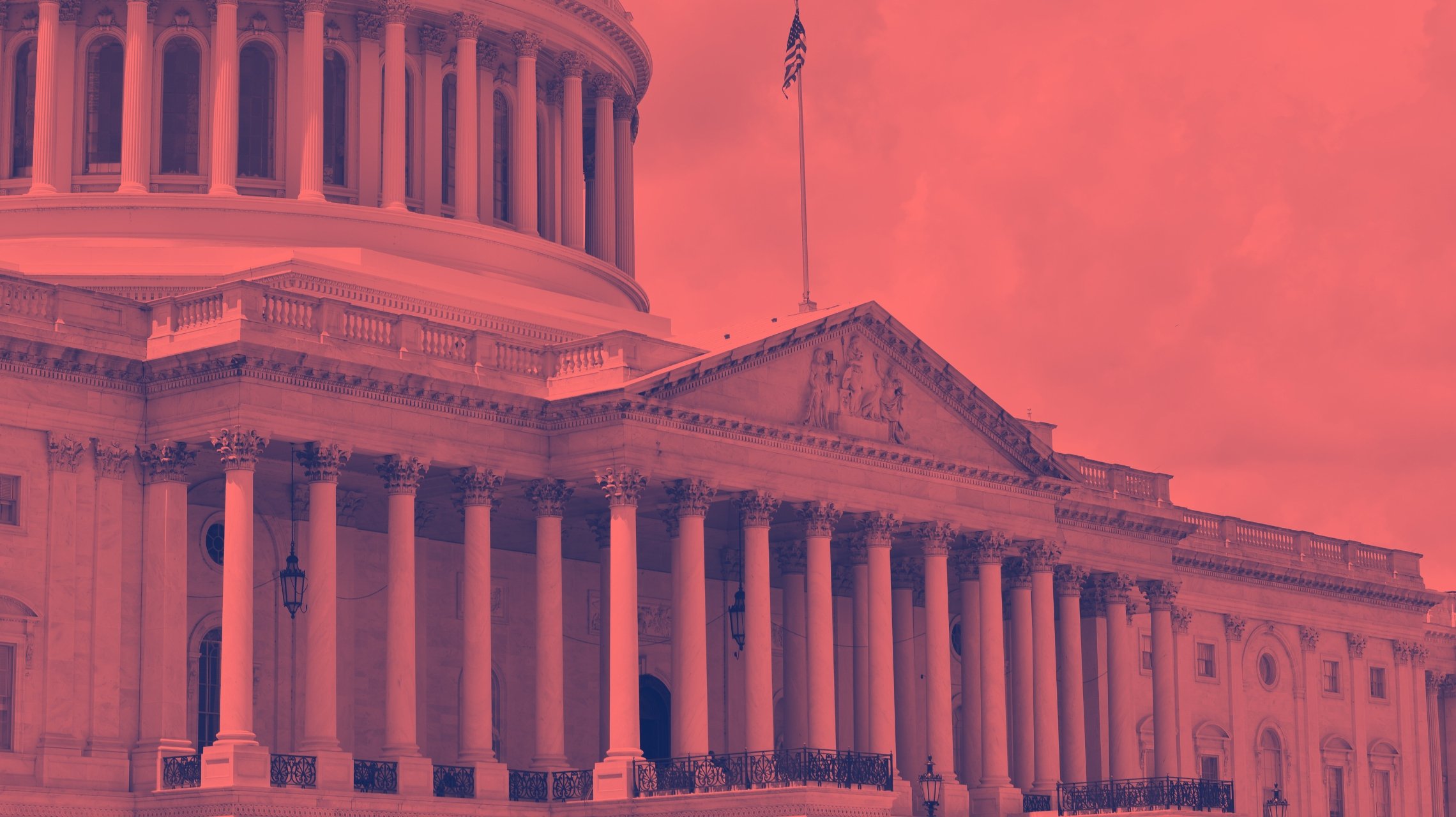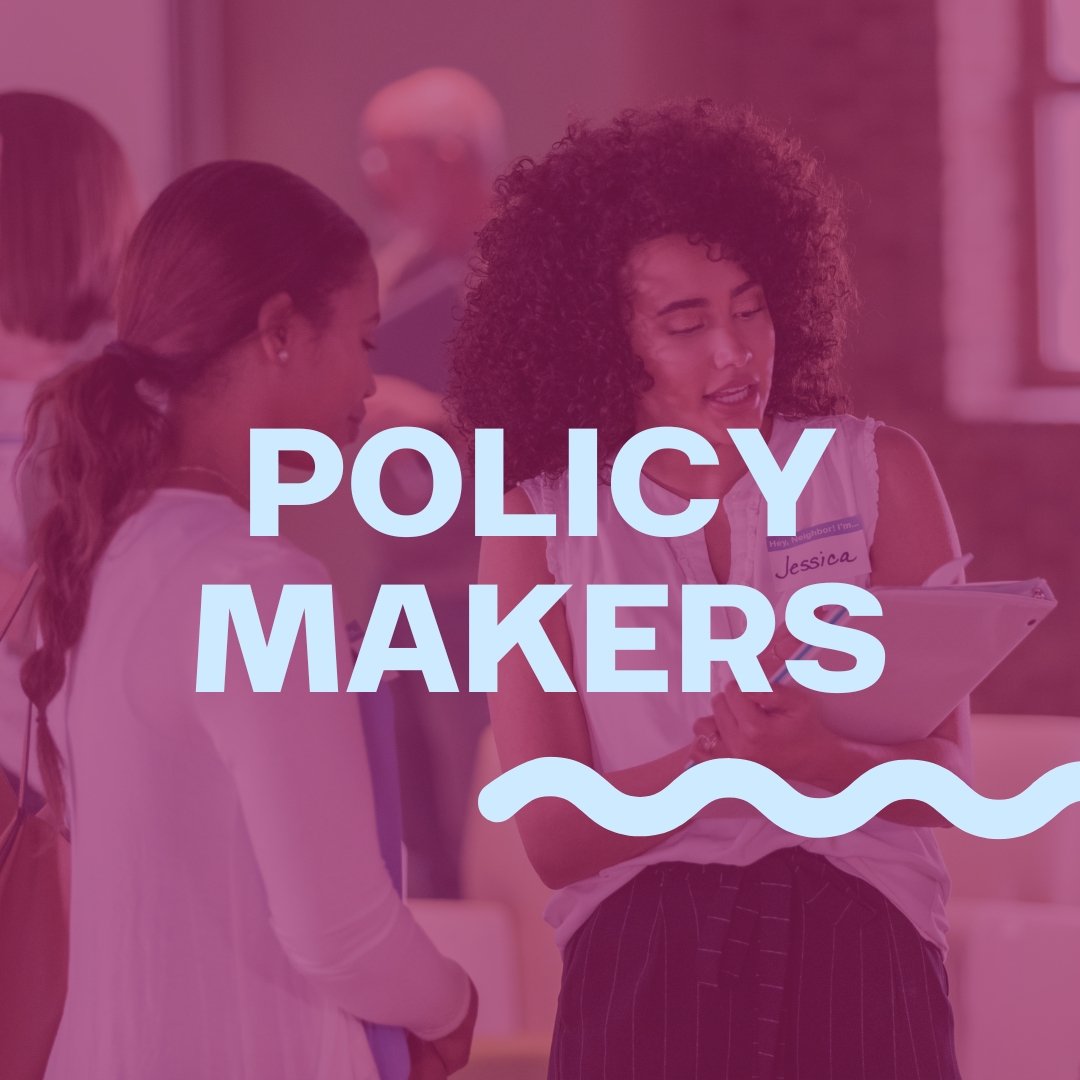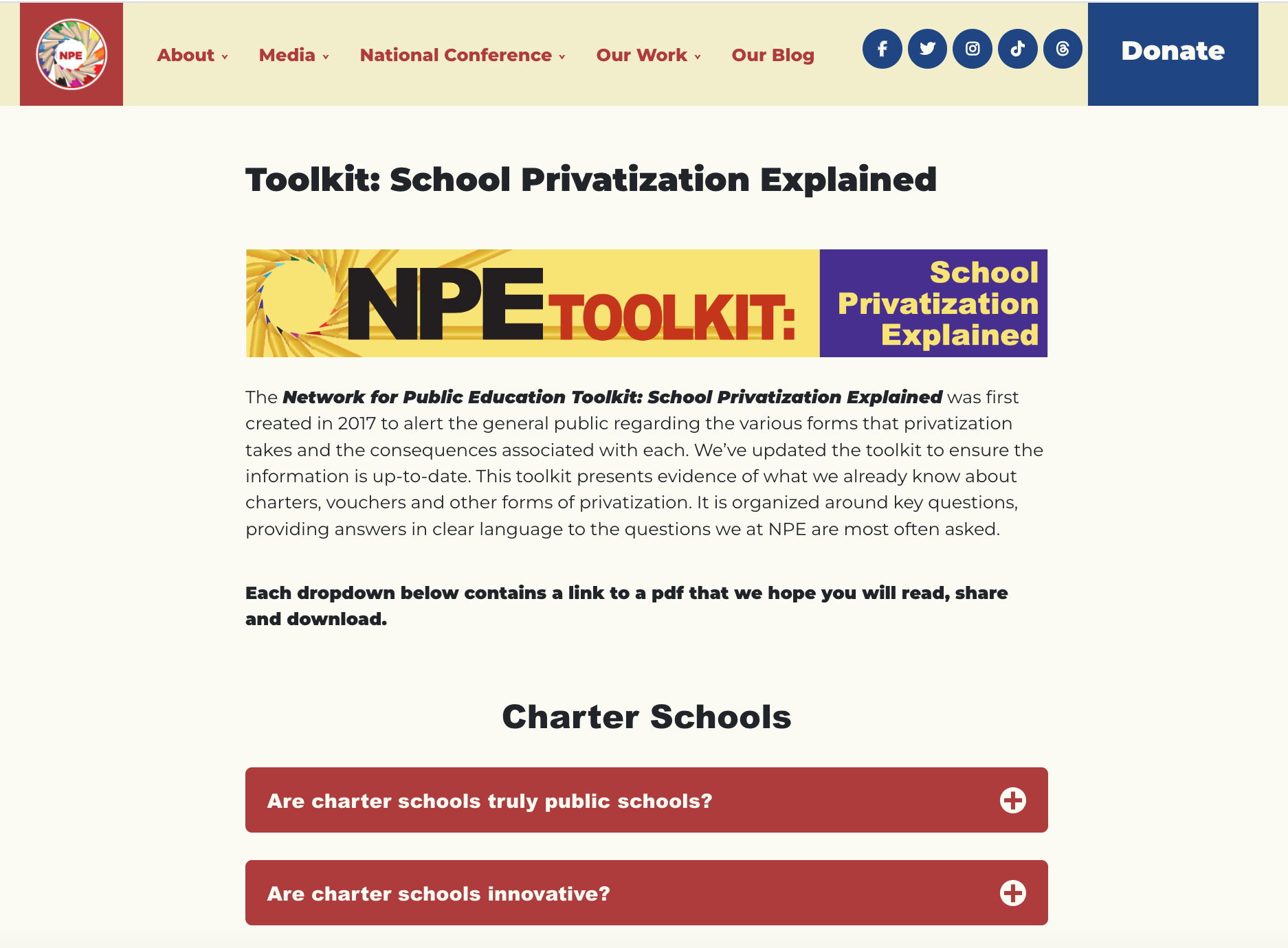
TRUTH IN
EDUCATION FUNDING
Your Guide to Understanding Vouchers and Supporting Public Education

Trump Administration Play-by-Play
2025 and Beyond
The Truth in Education Funding Guide offers key resources to understand the controversy surrounding vouchers and advocate for equitable and effective public education.
School voucher programs use public funds to pay for private education costs. These programs are spreading despite overwhelming evidence that they are harmful public policy.
In recent years, more and more states have introduced or expanded voucher programs, costing the public billions of dollars annually.
Often, these programs are in states that already underfund their public schools, where most young people receive their education.
Just Released: January 2025 Newsletter
Spotlight on Federal Voucher Legislation
As the Trump administration signals a renewed push for federal school voucher legislation, including the Educational Choice for Children Act (ECCA), public education faces significant threats. The proposed program could redirect billions of dollars in public funding to private and religious schools with minimal oversight, amplifying concerns about civil rights violations, fiscal impacts, and inequitable access to education. Explore the full breakdown of proposed legislation, fiscal consequences, and ways to take action in our latest analysis. Read the full post for resources, expert insights, and practical ways to get involved in defending public education.
Choose your starting point.
-

Students, did you know your peers are already taking a stand against voucher programs? Your voice matters as you are pushing for policies that make sure all students get the education they deserve.
-

Parents and caregivers, you can join the movement to safeguard public education against voucher programs that threaten to dilute the quality of your children's education.
-

Policymakers, your leadership is instrumental in addressing the critical challenges posed by voucher programs, which threaten the foundational principles of equity and integrity within our public education system.
-

Advocates, your action is crucial in challenging voucher programs. Together, we have the power to prioritize fairness, diversity, and the collective good of our school communities.
Explore recommended insights.
Navigate the controversy.
Advocate for public education.
Safeguard our communities.
Featured Resources
Preview Questions
-
School vouchers were first introduced during the Civil Rights era when efforts to desegregate schools were at a peak. At that time, publicly funded scholarships to attend private schools were intended for white families to escape state desegregation efforts. While current pro-voucher advocates don't put segregationist intentions on display, research shows that voucher programs increase racial isolation and offer no educational benefits.
-
School vouchers divert funds meant for the public education and funnel them into private schooling. The damage this can do to public schools, and the fraud and abuse that occurs, are often clear and limit public support for voucher programs. In response, pro-voucher forces have come up with different names for vouchers, including ”opportunity scholarship” vouchers, “education savings accounts” vouchers, “tax credit” vouchers, and “universal vouchers,” each with different rules, to hide their true intent. But, no matter the name or rule changes, all these voucher programs share a common theme: they shift public money to private schools, often without appropriate accountability, transparency, or safeguards for students and families. The resources gathered here describe these different types of voucher programs and explain how they work.
-
Voucher programs pose a significant threat to the fiscal health of state budgets and to funding for public schools, which is often inadequate. Yet state legislatures are pouring more and more public funding into voucher programs, all while misrepresenting their fiscal impact. The following resources explain the fiscal impact of proposed or existing voucher programs on state budgets and public school funding.






